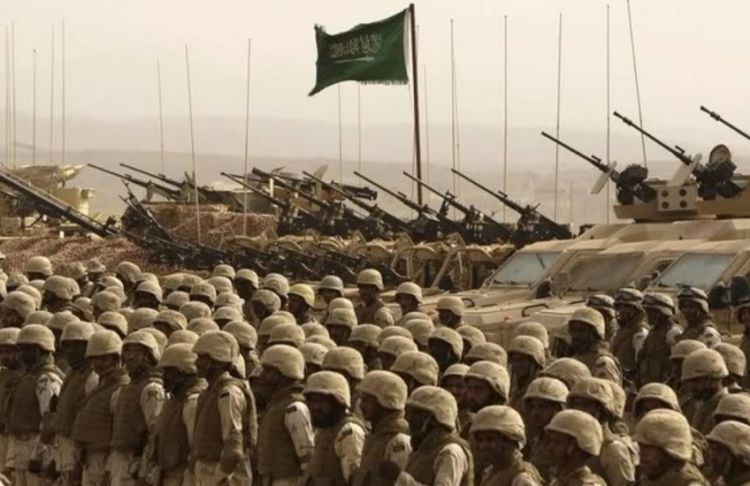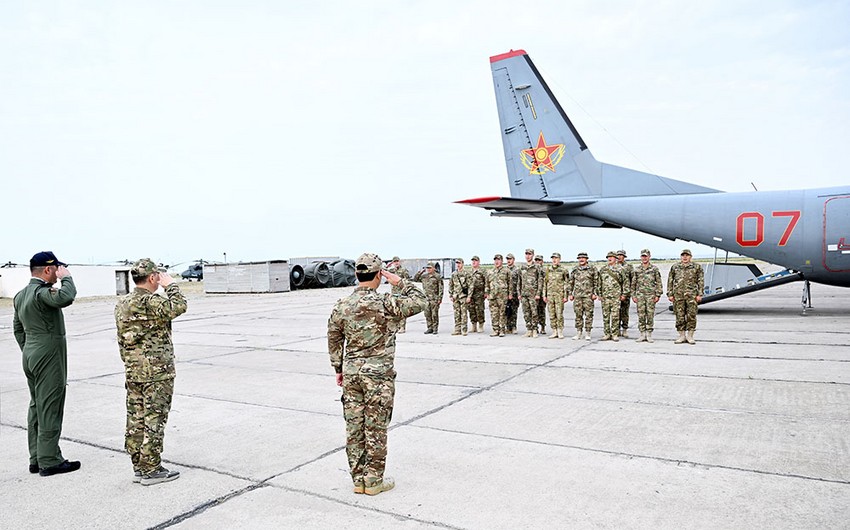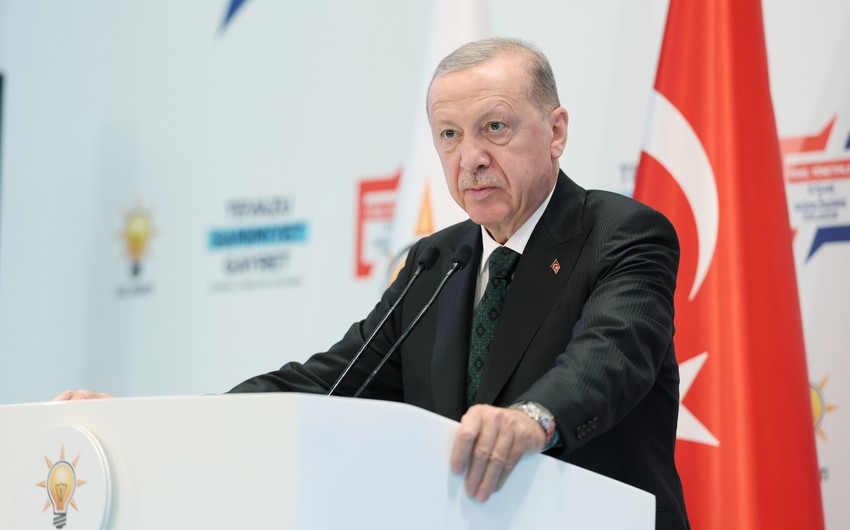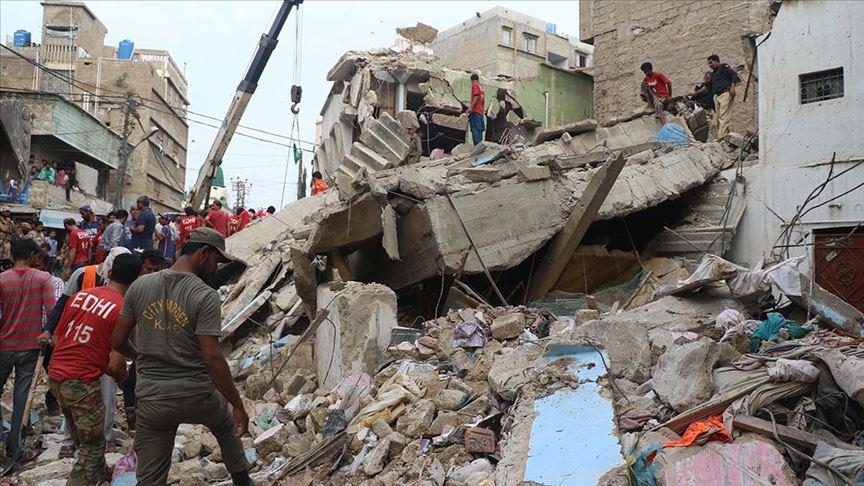The Kingdom of Saudi Arabia is the largest country in the Gulf region, which has shared borders with other Gulf countries-Oman, UAE, Bahrain, Qatar, Kuwait, and Yemen, Iraq and Jordan also littoral state of Red Sea and Persian Gulf. Saudi Arabia has been geographically much more significant to powers in Europe, such as the United Kingdom, France and United States, due to fact that it holds enormous energy resources, and included in important strategic area in the Middle East. Currently, Saudi Arabia, among big Muslim countries play leading role in the promotion of significant issues in the Organization of Islamic Cooperation. Furthermore, the Kingdom along with other Gulf countries have had conflict with Iran in Persian Gulf for a long time.
![]()
Eurasia Diary presents interview with Mohammed Alrmizan regarding the role of Saudi Arabia in the Gulf and Middle East. Mohammed currently works as researcher at the King Faisal Center for Research and Islamic Studies.
We all know that the Kingdom of Saudi Arabia is one of the richest oil countries in the Middle East, but our main question focus on political power of the Kingdom in the region. What can you say about the role of Saudi Arabia in maintaining security and stability in Gulf region including the whole Middle East?
At first, thank you for conducting this interview with me and for your intriguing questions.
I want to inform that Saudi Arabia is not only one of the richest oil countries in the Middle East and North Africa (MENA), but is among the top countries producing oil of which the United States of America, Russia, and others. While so many academics, journalists and interested critics may know the fact that Saudi Arabia is, indeed, an important country when it comes to oil. However, many of others may not know much or may have some limited knowledge if not misunderstood about how the significant role of Saudi Arabia in not only oil prices and industry, but also in the region of the Gulf, MENA and beyond. Saudi Arabia as a country is one of pillars of security of the Gulf region, as it’s the largest country in the Arab Peninsula, and one (and largest) member of the Gulf Cooperation Council (GCC) along others, the UAE, Kuwait, Bahrain, Qatar and Oman, which shows a stronger presence with not only politics, but also economy for its oil reserves, hosting the holy cities, and population, which is exceeding 30 million people. Many examples could be brought from history that shows how Saudi Arabia is active in peacebuilding and stability of the region, one is its help to end the civil war in Lebanon by hosting the agreement in Taif, a Saudi city in the west, in 1990. Another example would be Saudi Arabia primary role in liberating Kuwait also in 1990-1991 from Iraqi occupation. As for recent times, Saudi Arabia has maintained an active relief and humanitarian assistance and donation for Syrian and Yemeni people, and others, by a few institutions of which King Salman Humanitarian Aid and Relief Center is only one of many. The latter, has contributed to over 1092 projects, with 168 partners, and total cost exceeding $4 billion in 35 countries. Saudi Arabia’s strategic position and resources also oblige him to take more responsibility than other smaller states in the Gulf. So, the Kingdom is striving to help Middle East with peace in Yemen, and have peaceful relations with neighbors and maintain a negotiation channel open specially with Iran as threat to regional security have been seen as one of the challenges for a more peaceful Middle East and Gulf Region.
Saudi Arabia has been carrying out air strikes against Iran backed Houthi movement in Yemen since 2015. What priorities urge Saudis to take control of security in this country?
It is important to note that secure countries have secure borders and brotherly relations with their neighbors as much as the United States have with Mexico, Turkey with Iraq, Kuwait with Iraq, and also Saudi Arabia with Yemen. It is necessary to know that Saudi Arabia has priorities in Yemen, but not agenda. The Saudi aims are easy to understand as they seek to have a peaceful Yemen, a ensure legitimate government in office and no external intervention that may undermine not only Yemeni territories, but also may threaten Saudi Arabia’s security, and later the international order.
Two years ago, Saudi Arabia and other Gulf countries pushed Qatar into blockade. Since that year what reasons have been urging you to keep your neighbor in blockade?
Indeed, in May 2017, Saudi Arabia, and some members of the Gulf, mainly the UAE and Bahrain (including Egypt) decided to cut relations with Qatar, a GCC member in the east of the Gulf. Whether it is a blockade or a boycott, it is important to note that it is being described as a crisis or a rift in brotherly GCC relation. The reasons for such an issue are impeded in, what some political analysts and experts in GCC describe, a historical competition for regional legacy and leadership. Having said that, Qatar is still a GCC member, and was invited to attend the annual meeting of the GCC, which was occurring this time in Riyadh on 10th of December 2019. While the Emire of Qatar was not attending, one of the Qatari state official attending the meeting in a step described only as a major development.
US and Europe-led naval coalitions have decided to initiate military operations in Persian Gulf and the Strait of Hormuz, because of series of attacks against oil refineries. Why Western powers should intervene in protecting security in these territorial waters?
US, and Europe’s recent naval coalitions in Persian Gulf (or the Arabian Gulf) come in to show that there is an increased sense of insecurity, due to Iranian threat and intervention in more than one place in the Middle East, from Iraq to Yemen. Another idea to consider is that these coalition signals what would be another level of security cooperation between not only the U.S. and Europe, but also other countries like Japan, and countries in the Gulf, possibly all members of the Gulf, including Iraq and Yemen. This happens, because we experience a high level of insecurity that not only influence states near the Persia Gulf, but also international interests of other states as well, especially those engaging with oil shipments and import-export activities.
Is it possible for Saudi Arabia and other Gulf countries to keep security in region together?
Unfortunately, it is not, but it should be. From point of my view, The Gulf security, the MEAN and world security should be promoted in the successful cooperation of not only the GCC countries, but also with Yemen, which is the least secure and most vulnerable state in the region. Therefore, if the GCC want to have a successful role in maintaining security depends on its fullest capacity, they have to resolve their issues, which is still in the process. However, it is difficult to speculate about what could happen either in the short or longer runs.
What information can you give us about the role of your country in struggling with terrorism in the Middle East?
Saudi Arabia as a state has several experiences with terrorism and countering terrorism. The role of Saudis in this regard is not less than other major countries such as the United States or the United Kingdom. Saudi aid has been very helpful to the continuity of countering terrorism not only in Saudi Arabia, but also in Africa, the Middle East and beyond. One of the major aids is Saudi Arabia pledging $100 million to support the G-5 Sahel force to counter terrorism in West Africa in December 2017. Saudi Arabia in 2011 in collaboration with the UN, helped to create and establish United Nations Counter-Terrorism Center, and pledged $110 million. Saudi Arabia is a founding member of the Global Counterterrorism Forum, an international forum of 29 countries. In recent years, Saudi Arabia has established various agencies for countering terrorism on institutional level like Global Anti-Extremism centre Etidal, among others. It is important to note that Saudi Arabia itself has been struggling with terrorism for years, which it started with Al-Qaede attacks, and later Daesh and other militias, as well from early 1990s until recent years.
As a matter of fact, for how much countering terrorism is important to Saudi Arabia, where I work as a researcher at the King Faisal for Research and Islamic Studies (KFCRIS), the Center established Security Studies, a newly established research unit in 2018. In addition, early in 2017, the Center organized Riyadh Forum on Countering Extremism and Fighting Terrorism.
Could there be possibility for both Saudi Arabia and Turkey to act together in fighting against terrorism and securing region?
That is a very critical and important question. Collaboration of states in fighting terrorism depends first on if states have shared borders, but now it doesn’t matter that states have shared borders or not, it is necessary to continue cooperation in fighting terrorism as the case of Saudi Arabia and Turkey. Earlier in 2015, Saudi Arabia announced the creation of Islamic Military Counter Terrorism Coalition, which is an organization that brings 41 states, among them also Turkey. So, the institutional level of cooperation against terrorism and security is already going in this development. Moreover, it is important to note that regional powers in the Middle East such as Saudi Arabia and Turkey to help bring their experiences in countering terrorism, because their experiences could contribute to better understanding and moving on their experiences to other states.
Why Saudis consider Iran as big threat in the region?
Why would any secure and independent state not accept any threats? I post a question in response to your question to convey my answer in a better way. Saudi-Iranian relations could be seen is that Saudi Arabia, as an independent state does not accept any threat from other states, especially in the region, including Iran. We believe that any source of threat we face and the international order require us to deal while cooperating with our allies including Americans, Europeans, and others. We view Iran as a threating player in the region and to our country, because of its actions, and here we refer to the government and the state, not the Iranian people, who share with us cultural and similar habits and history.
How could you describe diplomatic position of Saudi Arabia in international relations, especially between Western and Eastern powers (Russia and China)?
The position of Saudi foreign policy in the King Salman’s era tend to shift toward diversifying in not only economy announced by Saudi Vision 2030, which is a set of plans for Saudi future, but also in international relations. While Saudi Arabia since its foundation by King Abdulaziz Ibn Saud, it has been an ally of classic superpowers such as the United States, United Kingdom, France, among others. However, the shift in Saudi foreign policy appeared in the strengthening of Saudi rapprochement with other growing superpowers like Russia and China. This is evident from the royal visits to both China and Russia, and also official exchanges of visits and number of agreements were signed in the past two years by the Saudis with Russians and Chinese either those related to the government or the private sectors as well.
Interviewed by Yunis Abdullayev










